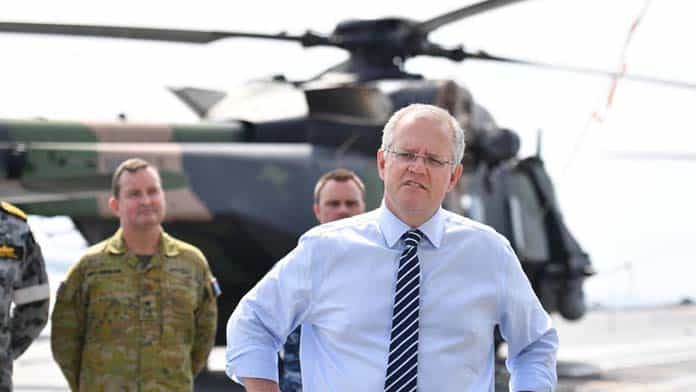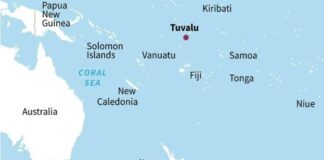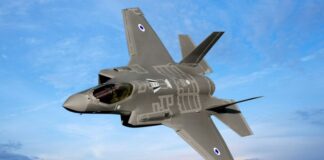David Brophy’s book China Panic is a timely intervention into the growing nationalist hysteria about China. Shortly after the book’s release, Defence Minister Peter Dutton flagged an anticipated increase in US troop rotations in the Northern Territory. He said that, facing a growing threat from China, Australia, “must be prepared for any contingency”.
Similarly, Scott Morrison is determined to fan the flames of conflict between China and the US—two nuclear powers. In the lead up to the G7 Summit in Cornwall he gave a Cold War-style address warning China’s rise is a looming threat to the free world.
China Panic aims to counter exactly this kind of dangerous war-talk which is becoming louder by the day. Brophy is an historian who has studied and visited China’s Xinjiang province, as well as an active participant in the debates and protests at universities in support of Hong Kong, Palestine and around other issues.
In the introduction, Brophy points out that the belligerence of the Australian government is bolstered by a torrent of anti-China propaganda from politicians of all stripes, intelligence agencies, the media, think tanks, journalists and commentators. Overwhelmingly, the terms of debate have been about how and why to engage in conflict with China, rather than whether to.
The first four chapters usefully review Australia’s current “China panic” and put it in context. Brophy points out that rhetoric about China’s threat to democracy and a “rules based” international order is deeply hypocritical.
The credibility of such rhetoric depends on ignoring the fact that Australia has joined the US in numerous, immensely destructive wars; and on pretending the US encirclement of the globe with a belt of 800 military bases is a neutral act.
The book is at its strongest in the chapter on “Influencing the Region”, which argues Australia is a “sub-imperialist” power. This provides a powerful explanation of the particular virulence of the anti-China agitation from Australia’s ruling class.
Brophy argues that Australia has always depended on an “ally capable of calling the shots in Asia”. In order to cement the increasingly contested US presence in the region Australia is convinced it: “can’t afford to simply ‘tag along’ with America’s efforts to uphold its dominance: Australia has to encourage Washington to step up the fight.” This is what drives Australia to be “more imperialist than empire itself”. Morrison’s pre-G7 speech is a case in point.
Key battlegrounds
Later chapters focus on key ideological battlegrounds in the China debate: Australian university campuses, Xinjiang and Hong Kong. The latter two chapters offer some of the most interesting insights in the book.
Brophy describes “Let’s talk about Hong Kong” meetings organised on Australian campuses during the Hong Kong democracy protests, in a context where the media narrative portrayed mainland Chinese as unthinking dupes of Chinese Communist Party propaganda. Attended by both mainland Chinese and Hong Kong students, these meetings involved genuine critical discussion and indicated the sympathy for the Hong Kong protests amongst mainland students. The meetings indicated an avenue for change in China that doesn’t involve Western imperialism.
The chapter on Xinjiang is also a highlight. It is critical of the way Chinese state persecution of the Muslim Uyghurs is held up as proof of China’s unique barbarism, without minimising the extent of China’s crimes.
The chapter outlines how the persecution of Uyghurs was legitimised internationally by the Islamophobia the West used to justify its recent wars in the Middle East. It details how abuse of Uyghurs was mirrored across the border in Afghanistan, with extensive war crimes committed by Australian troops.
The analysis of anti-Chinese racism—now the fastest growing form of racism in the country—is also timely. His chapter on “Sovereignty, Values and Racism” explains escalating anti-Chinese racism as a product of elite policy.
Despite the book’s strengths, the discussion is too often framed in terms of foreign policy alternatives Australia should adopt. Yet foreign policy is always determined by what the ruling class understands to be in its own interests. There are economic and political imperatives to Australia maintaining its dominant imperialist role in the region.
An insistence on the threat that Australia and the US pose to global peace, democracy and national self-determination is the clearest answer to Morrison’s dangerous sabre rattling.
Overall, China Panic is an important counter to the warmongering of the Australian ruling class, motivated as always by profit and strategic advantage.
Alongside anti-China diatribes like Red Zone by Peter Hartcher, China Panic distinguishes itself as a critical voice. The disturbing ruling class unanimity about confronting China is a reminder that the opposition we need will only come from ordinary people and workers. China Panic is a much needed contribution to that effort.
By Adam Adelpour
China Panic By David Brophy
Published by La Trobe University Press, $32.99






